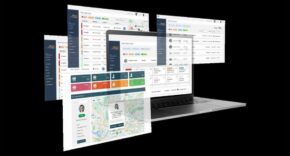Without question, the focus of our beloved NHS is always to save lives. The importance of technology and the impact it has, both within the NHS and on patient outcomes, cannot be denied. The current fervent media debate questions both the pros and cons in deploying health tech within the NHS versus privately owned companies racing toe establish technology and AI As the newfound solution to diagnostic success and remote access to healthcare.
In this analysis, we look at how technology can work to serve the NHS in empowering both CCG’s and practices to effectively manage key critical health issues via patient messaging which can be easily deployed by CCG’s and GP Practices in order to positively impact patient outcomes.
Current NHS Spending – Treatment versus Prevention
The NHS currently spends £97 billion on treatment versus £8 billion on prevention, and many health care professionals agree with Matt Hancock’s recent call for more spending on preventative healthcare to address the socio-demographic challenges primary care is facing. The Secretary of State’s focus for preventative medicine in the recently released Green Paper (5.11.2018) is aiming to stop people from slipping into poor health. The paper, entitled “Prevention Is Better Than Cure” argues for a shift towards primary and community care services, which helps people stay healthy.
Almost one in three people in the UK have a long-term condition and the NHS spends over two-thirds of its budget treating these conditions, many of which could be prevented by changes in lifestyle. There is no doubt that the Secretary of State for Health and Social Care is a great believer in technology, the question is how we can use these innovations to focus on preventative measures that are targeted at helping people change their unhealthy lifestyles.
Using SMS alerts improves cervical cancer screening rates by 12%
Women in London have already benefited from a new text messaging service for cervical cancer screening commissioned by Public Health England and National Health Service England, a service which is delivered by iPLATO Healthcare. Since the launch of this messaging reminder service, there is now clear clinical evidence that lives have been saved by sending out messages to remind women to attend their cervical screening appointments.
With nearly one third of eligible women not attending their scheduled cancer screening, Public Health England is using smart messaging to remind women about their smear test and in some cases allow them to book their test directly from their smartphone.
This BJC clinically validated programme improved attendance by nearly 12% in women with phones registered at their practice. The programme is now in place in nearly 1,200 practices in London, covering 1.8m women. The cervical cancer screening in London saves 1 woman’s life per week, if this was expanded across the UK it could save 1 woman’s life per day. This kind of technology could also be used to improve rates for bowel cancer, prostate cancer and breast cancer screening, as well as allowing recall and booking for diabetic retinopathy and AAA screenings too.
The NHS put the cost of late detection of the 4 main cancers at £150m per year, costing each CCG up to £1m a year alongside the impact on families and carers. Following Matt Hancock’s agenda, a campaign on all 4 major cancers would cost £2m annually, with an ROI of 75x, and could save 1,000’s of lives per year.
Flu vaccination rates can be improved by 5%
Some of the simplest measures where technology can play a part are in the reduction in unwanted demand. Bolton CCG conducted a year-long study and showed they were able to reduce their DNA’s in primary care by nearly 20,000 appointments using SMS and data messaging. The easy use of reminder messages sent to patient’s smartphones meant that – apart from the obvious cost savings – they freed up appointments for those in need. At a practice level, this reduced the need to utilise and pay for locums, and reduced stress on busy practice staff.
Another group from the London School of Hygiene and Tropical Medicine reported in The BMJ that using SMS/Data reminders for flu vaccination improved uptake by 5%. This is a simple task that practices can adopt and run in minutes. With Winter approaching, the NHS has shown the current 2018 flu vaccine to be 10.1% effective in over 65 years olds, preventing unwanted A&E visits and reducing mortality.
The more we can vaccinate, the more lives will be saved. 72% of the 13,000 mortalities from flu occur in the over 65 age group. A digital flu reminder campaign could save thousands of elderly citizens per year.
Switching to data messaging reduces SMS costs by up to 40%
Many CCGs and practices are surprised by how much SMS bills have grown. Even with the National Framework Contract price for SMS set by EE/BT, it is still widely considered as costly, so many practices are encouraging a combined approach to patient messaging using a blend of data and SMS. The real secret to success is having systems that automatically switch messaging to the cheapest option (data) but also have great patient ratings for usability. Some data app providers have ratings as low as 1.5/5 on the App Store where as myGP has a rating of 4.6/5. The higher the rating, the more likely the app will be utilised by patients using a data platform meaning more money is saved for the CCG by reducing reliance on costly SMS. Some CCGs have been able to reduce their SMS bills by up to 40% through data messaging, representing significant savings and money that can therefore be spent on prevention and the promotion of preventative health.
myGP Video consultation, Biophysical measurements and patient monitoring packages
The myGP remote consultation service, funded in partnership with NHSE, allows patients to have video consultations with their own GP practice. This service offers remote consultation functionality to all patients without the need to change their current family GP. All patient medical history is available during the consultation, care is continuous and funding stays with the current GP practice, services which are facilitated easily via the iPLATO Healthcare platform and myGP app.
In the North-West of England, a collaboration between iPLATO Healthcare and NHS providers (CCG/STP) has also been developing ways for patients to enter and capture biophysical measurements to patient records. Patients can be ‘prescribed’ monitoring packages to enable management of their chronic condition, and their GP can now track the patient’s progress and see trends that require intervention.
As an example of cost benefits to the NHS as a result of successful monitoring of chronic conditions, identifying early exacerbation in CoPD patients can help to save some of the £500m that the NHS spends on hospital care.
Prevention not cure
To summarise, it is clear that evidence proves that technology such as patient messaging can be used even at a basic level to save lives. From simple reminders and booking of screenings and diagnostics, to using data tracking and predictive analytics, it all makes a difference. This starts with giving patients tools that they find useful, can access easily and allows them to take control of their health care.
With 21.5m patients in the UK already accessing the iPLATO Healthcare platform and having the number 1 medical app, myGP, Matt Hancock’s vision to use technology to drive the prevention agenda is realisable and deliverable……today.
For further info please contact
Mike Lewis on Michael.lewis@iplato.com
Follow us on Twitter @iPLATOhealth












